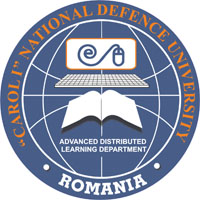MiniGL: GAME AND LEARNING
MiniGL: GAME AND LEARNING
Author(s): Delilah Florea, Arpad Gellert, Adrian Florea, Elimelec BurgheleaSubject(s): Education
Published by: Carol I National Defence University Publishing House
Keywords: Android; mobile learning; games; programming; open-source
Summary/Abstract: "Learning may be boring! Try different games in the morning!" We just paraphrased a radio formula in order to explain that it is not need to force students to learn, but we can offer them attractive ways of acquiring knowledge, for example a game. Because nowadays almost every person has a smartphone, and students use smartphones more than PCs, we build games available to mobile devices (smartphone, tablets). Thus, even if they play simple exercises, their brain is working. Furthermore, by a mechanism of reward, they are motivated and want to play again in order to improve their performance, skills, understand solving methods and discover new things. This project targets a large audience. It contains easy games for children, hard games for adults, but those share a thing in common: learning in a pleasant way. It also targets new developers who would like to make their first game application, but starting from scratch is hard for them. By easily adding new features they will be motivated to do something more. Others can play various games while testing their knowledge and can improve their performance because this application provides some training levels. It doesn’t matter how they use this game, in the end everybody wins. The purpose of this paper is both to develop enhanced skills of computing, attention and memorizing for games' users and to create programming skills on portable media devices for coders, namely developing the first game for smartphone by a beginner. We implemented in Java under Eclipse framework some educational games for math learning and for testing the cognitive capacity of memory. The applications run on Android mobile phone or on desktop computers having Android emulator with a newer version than 2.2 (Froyo). Our choice is motivated by the fact that, according to market research 49.2% of mobile devices sold worldwide in 2012 have used Android System Architecture. The implemented games are time-dependent straight influencing the score. The MiniGL tool is currently used by students and teachers at Java and Games Programming laboratories from academia especially belonging to "Samuel von Brukenthal" National College and "Lucian Blaga" University (LBUS), both from Sibiu. MiniGL assures the following features specific to almost all educational tools: free availability for use, open-source, flexibility, extensibility and partial portability. The application’s source code can be found at https://github.com/coloredflare/MiniGL. The results of a survey on second year students of the Computer Science and Electrical Engineering department LBUS about MiniGL usefulness shows that our students consider MiniGL a valuable learning tool.
Journal: Conference proceedings of »eLearning and Software for Education« (eLSE)
- Issue Year: 11/2015
- Issue No: 01
- Page Range: 180-187
- Page Count: 8

